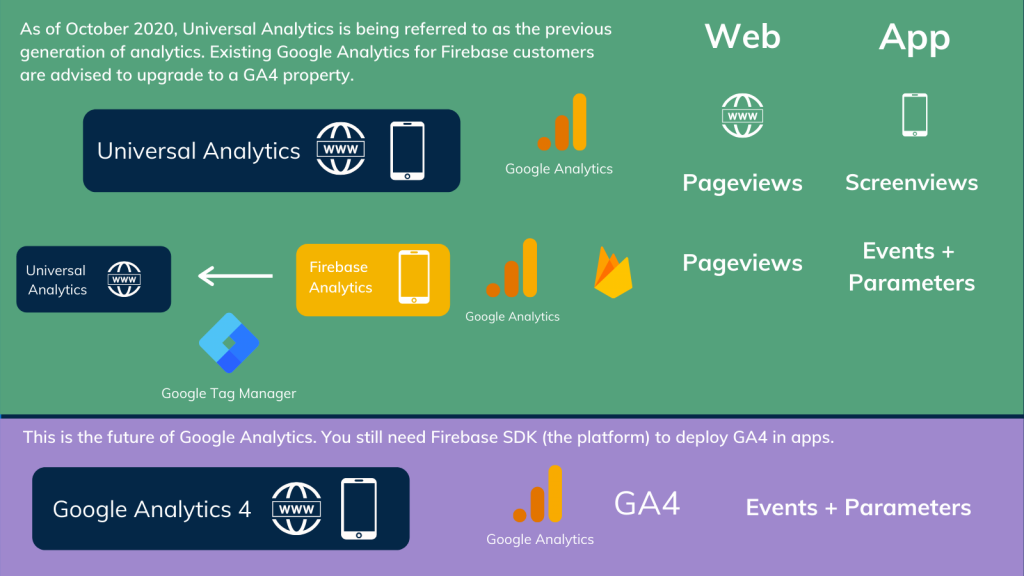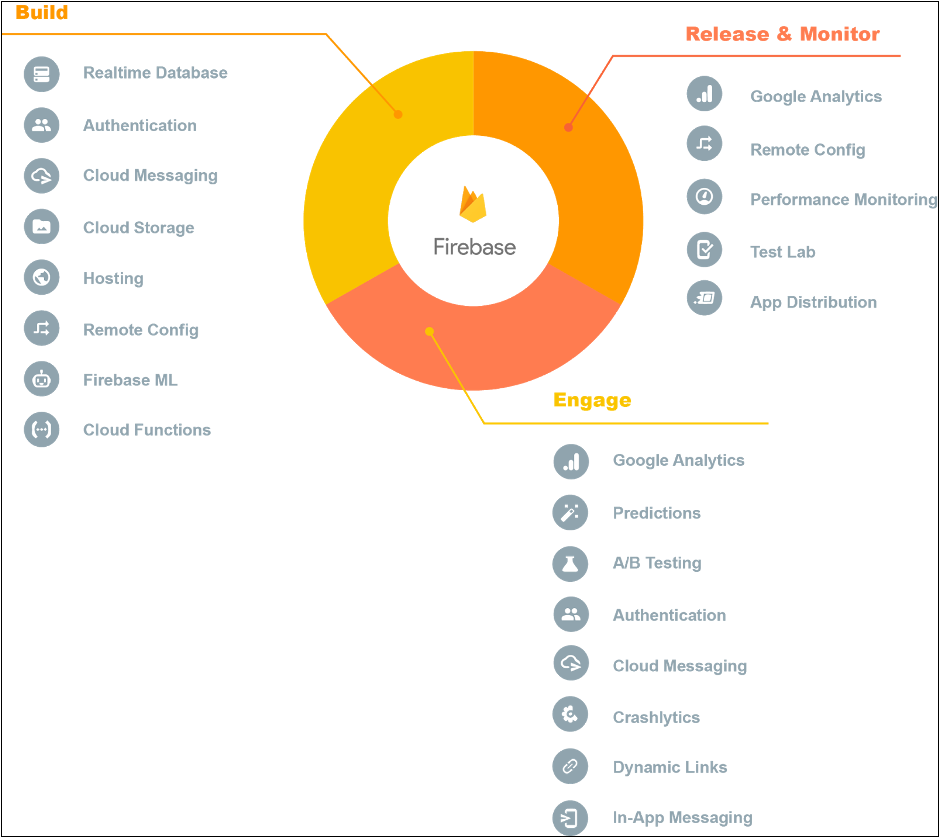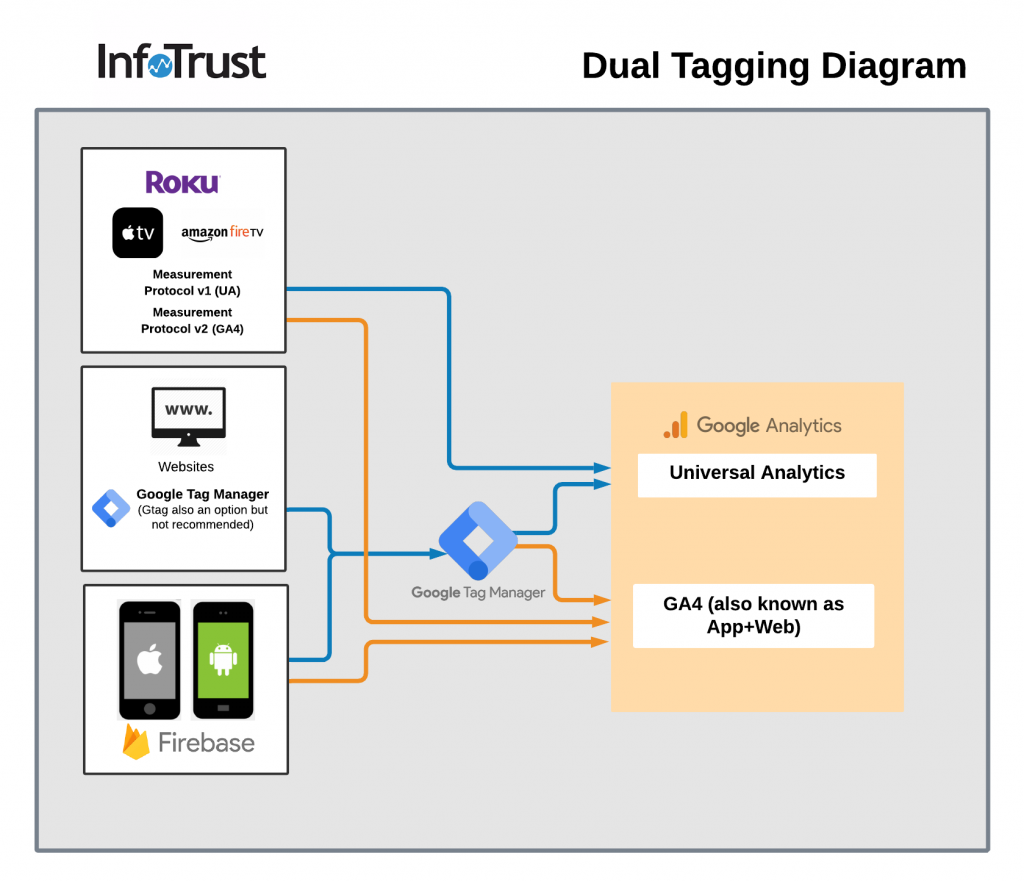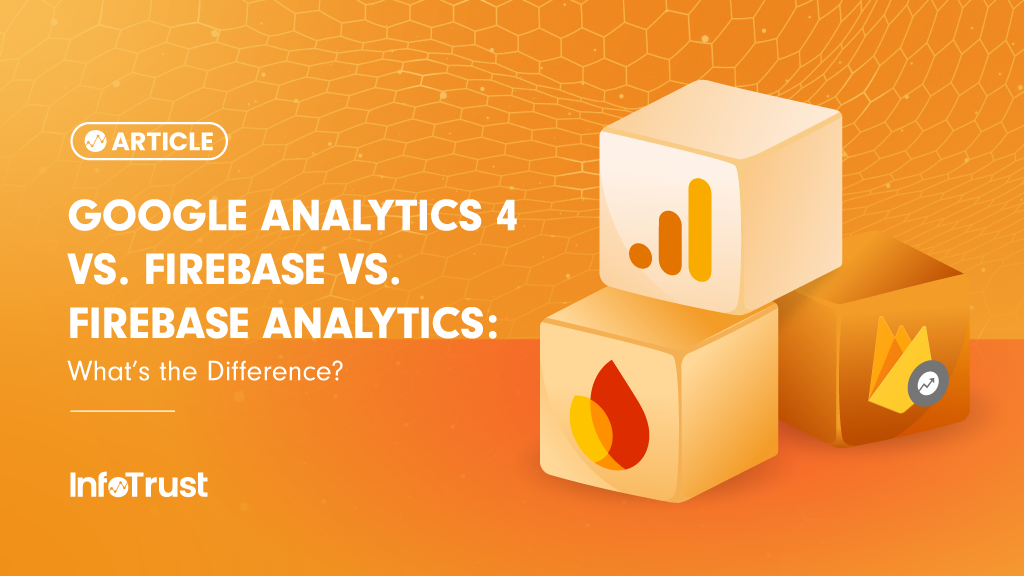There’s a lot of anticipation surrounding Google Analytics 4, an update within the Google Analytics (GA) product. Until recently, web analytics remained separate from app analytics or data collected on other platforms within GA. With GA4, analysts can gain more value by combining data on user actions and conversions for insights across different platforms including mobile and over-the-top (OTT) apps.
GA4 (formerly App + Web) is known as the “future of analytics” by many, and the combination it will bring to website and app experiences is on an entirely new level. Not only will it eliminate the need for a separate mobile app view or a separate GA4 property just to track mobile app data, but it will also show the overall user journey through the entire acquisition funnel (unlike Universal Analytics which only provides glimpses of the user journey).
But before migrating to GA4 for mobile app measurement, you’ll want to understand the lay of the proverbial Google land. Explore the differences between the various mobile app measurements that currently exist, plus additional benefits you’ll gain from GA4 long-term.
Mobile App Measurement with Google: A Quick Overview
Google has had several tools for mobile app measurement and general mobile app services over its history:
Firebase Platform
In 2014, Google acquired the independent company, Firebase, which has morphed into its full-service mobile application development platform (beyond just analytics). Firebase as a platform allows mobile app developers to get access to a fully managed backend infrastructure, release and manage the performance of their apps, remotely change the behavior and appearance of their apps, boost user engagement with A/B testing, push notifications, dynamic link management, and more.
Firebase Analytics
Up until 2020, within the Firebase platform, there was a Firebase Analytics module that allowed data collection of mobile app interactions. This name was deprecated as of 2021.
Google Analytics for Firebase
Firebase Analytics is now known as Google Analytics for Firebase. It is still the only analytics module within the Firebase platform.
Google Analytics 4 (previously called App + Web)
Previously known as App + Web, the next version of Google Analytics (GA4) can either be created directly at analytics.google.com or accessed at console.firebase.google.com. It looks identical to Google Analytics for Firebase for mobile apps because GA4 is deployed using the Firebase SDK for app tracking and cannot be deployed via a tag management system alone.
Google Analytics Measurement Protocol for OTT/IoT Devices
This is a process for enabling tracking in Universal Analytics for devices not supported by Firebase and for non-traditional website and app tracking needs. At the time of writing this article, Measurement Protocol for GA4 properties has only been released as an alpha version.
Universal Analytics
The previous generation of GA properties used for websites, mobile apps, and OTT apps, as well as tracking of other connected devices. Universal Analytics lives separately from the Firebase platform entirely and can be accessed at analytics.google.com.

What is Firebase?
While you may be familiar with GA4, you may not be with Google’s unified mobile app platform, Firebase. This powerful resource includes a suite of mobile app tools that not only aid in app development (like cloud messaging, cloud storage, hosting, and testing), but also can engage your app’s audience via in-app messaging, dynamic links, and A/B testing. In addition, Firebase monetizes your app with an AdMob integration and helps with app measurement thanks to Firebase Crashlytics and Google Analytics for Firebase (which we’ll get to in a minute).

Source: https://firebase.google.com/products-build
What is Google Analytics for Firebase… aka Firebase Analytics?
Simply put, Google Analytics for Firebase is a free product available within Firebase. It feeds data into GA4 properties and has its roots as an event-based model in GA. Use Google Analytics for Firebase and you can take advantage of the seamless integration and enhanced measurement capabilities (if activated when setting up GA4 property).
Which Product is Right for You?
If you’re considering transitioning to GA4, don’t worry … you have options:
Analytics Platform | Native/Hybrid Apps | Websites/Web Apps |
Google Analytics for Firebase | ✅ | ✅ |
Universal Analytics | Optional (GTM Needed) | ✅ |
Google Analytics 4 | ✅ | ✅ |
Google Tag Manager | Optional | ✅ |
What about Dual Tagging? Should We Do That, Too?
Dual tagging means tracking your platforms with two versions of GA: Universal Analytics and GA4. You simply add two software development kits (SDKs) to your apps (Firebase SDK and Google Tag Manager SDK). Each website or app then sends data to two GA properties: one Universal Analytics property and one GA4 property. Firebase also sends automatically collected and activated enhanced measurement events to GA4 properties.
If you are a Google Analytics 360 customer, you were granted an extension to make the transition from Google Analytics Services SDKs to the Firebase SDKs. Once they are fully sunsetted, Google Tag Manager will be the only way to get app data into Universal Analytics properties (outside of using the Measurement Protocol which is development-intensive).
Google recommends migration to GA4 properties since that will be the newest version of Google Analytics. However, there will not be a way to migrate historical data from a Universal Analytics property to a GA4 property. So, the only current option is to dual tag with both GA4 and Universal Analytics.

Prepare Now and Be Rewarded Later
Change is never easy, but it is constant. So why not get ahead of the game by switching to GA4 (Don’t worry, you won’t lose your data)? It can have a profound, long-term impact including ROI and cost savings.
The current GA landscape as we know it will eventually be deprecated in place of a reimagined reporting experience across app and website analytics with additional features on the way. Google is arguably the leader in Machine Learning, so take advantage of GA4 with Artificial Intelligence and Machine Learning (Ai/ML) as the backbone of your analytics approach to upskill your enterprise globally.


